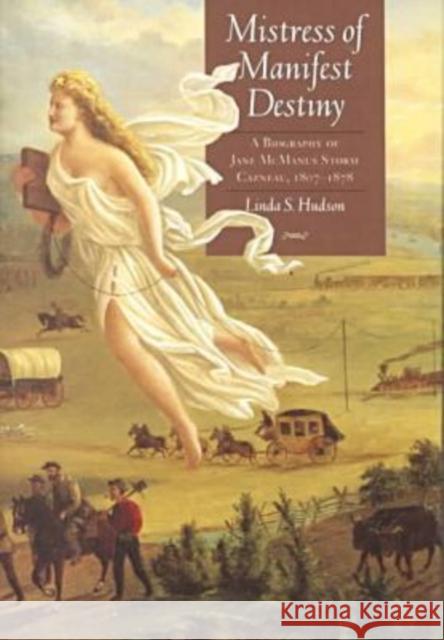Mistress of Manifest Destiny: A Biography of Jane McManus Storm Cazneau, 1807-1878 » książka
Mistress of Manifest Destiny: A Biography of Jane McManus Storm Cazneau, 1807-1878
ISBN-13: 9780876111796 / Angielski / Twarda / 2001 / 314 str.
Jane McManus Storm Cazneau (1807-1878) was a complex person who died at sea the way she lived--at the center of a storm of controversy. Whether as Aaron Burr's mistress, land speculating in Texas, behind enemy lines during the Mexican War, filibustering for Cuba or Nicaragua, promoting Mexican revolution from a dugout in Eagle Pass, or urging free blacks to emigrate to the Dominican Republic, Cazneau seldom took the easy path. She foresaw a nation with equal rights for all in a world in which representative government was the norm rather than the exception.
As a journalist, an advisor to national political figures, and publicist, she helped shape United States domestic and foreign policy from the mid-1840s into the 1870s. Cazneau's most unique contribution was as a staff writer for John L. O'Sullivan, editor of the "United States Magazine and Democratic Review," where she described the mission of the United States as "Manifest Destiny," thereby coining one of the most significant and influential phrases in American political history.
A single parent and working mother, Cazneau was not a women's rights woman who agitated for suffrage. She ridiculed the Seneca Falls housewives' complaints because real oppression existed for women in the factories, in the needle trades, on Indian reservations, and in the Caribbean. Cazneau advised working women to educate themselves and take better-paying men's clerical jobs.
Although it appeared that her schemes and speculations failed, many of the policies she advocated eventually succeeded. She promoted the need for a steam navy and merchant marine fifty years before Alfred T. Mahan. She wrote about the problems of the working class sixty years before it became a Progressive crusade, advocated agrarian reform fifty years before Populists took up the cause, and assisted republican revolutionaries a hundred years before the United States awoke to the needs of the ordinary people in the sister republics of the Western Hemisphere.
Cazneau's letters, books, journal, and newspaper articles leave little more than a hint of her intelligence and conversational wit, a mere suggestion of her sexuality and explosive temper, a glimpse of her courage and spirituality, and a trace of her sense of humor reflected in the sparkle of violet eyes beneath raven hair and a dark complexion that was her distinguishing trait. She was dedicated to the expansion of republican government; she had a special place in her heart for the abandoned and neglected, whether persons or animals; and she had a deep and abiding love for her country and faith in its people and in its future.











